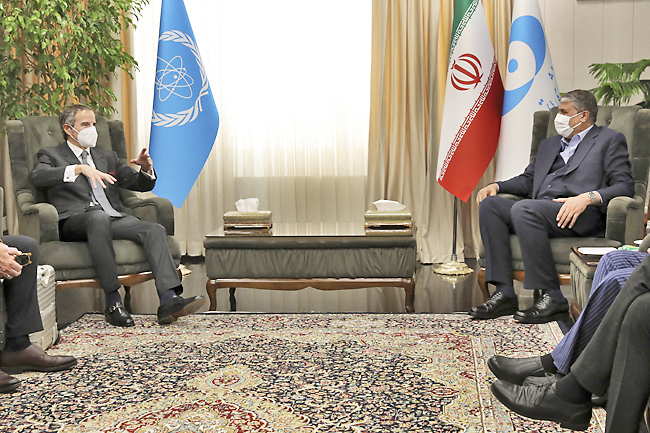AP – As the war in Ukraine rages on, diplomats trying to salvage the languishing 2015 Iran nuclear deal have been forging ahead with negotiations despite distractions caused by the conflict. They now appear to be near the cusp of a deal that would bring the United States (US) back into the accord and bring Iran back into compliance with limits on its nuclear programme.
After 11 months of on-and-off talks in Vienna, US officials and others said only a very small number of issues remain to be resolved. Meanwhile, Russia appears to have backed down on a threat to crater an agreement over Ukraine-related sanctions that had dampened prospects for a quick deal.
That leaves an agreement – or at least an agreement in principle – up to political leaders in Washington and Tehran. But, as has been frequently the case, both Iran and the US said those decisions must be made by the other side, leaving a resolution in limbo even as all involved said the matter is urgent and must be resolved as soon as possible.
“We are close to a possible deal, but we’re not there yet,” US State Department spokesman Ned Price said on Wednesday.
Reentering the 2015 deal known as the Joint Comprehensive Plan of Action (JCPOA) has been a priority for the Biden administration since it took office.

Once a signature foreign policy achievement of the Obama administration in which now-US President Joe Biden served as vice president, the accord was abandoned in 2018 by then-US President Donald Trump.
The Biden administration argues that any threat currently posed by Iran would be infinitely more dangerous should it obtain a nuclear weapon. Deal opponents, mostly but not entirely Republicans, said the original deal gave Iran a path to developing a nuclear bomb by removing various constraints under so-called “sunset” clauses. Those clauses meant that certain restrictions were to be gradually lifted.
Both sides’ arguments gained intensity over the weekend when Iran targetted the northern Iraqi city of Irbil with missile strikes that hit near the US consulate compound. For critics, the attack was proof that Iran cannot be trusted. For the administration, it confirmed that Iran would be a greater danger if it obtains a nuke.
“What it underscores for us is the fact that Iran poses a threat to our allies, to our partners, in some cases to the US, across a range of realms,” Price said.
Yet, Iranian Foreign Minister Hossein Amirabdolahian said a deal depends entirely on Washington.
“More than ever, (the) ball is in US court to provide the responses needed for successful conclusion of the talks,” he said after meeting with Russian Foreign Minister Sergey Lavrov in Moscow on Tuesday. Amirabdolahian said he had been “reassured that Russia remains on board for the final agreement in Vienna”.
Lavrov said the negotiations were in the “home stretch” and suggested that last-minute Russian objections to the potential spillover of Ukraine-related sanctions into activities Moscow might undertake with Tehran under a new nuclear deal had been overcome.
He said the agreement under consideration would carve those activities out, something the US has not denied and has said the Russians should have understood from the beginning.
“We would not sanction Russian participation in nuclear projects that are part of resuming full implementation of the (deal),” Price said. “We can’t and we won’t and we have not provided assurances beyond that to Russia.”



